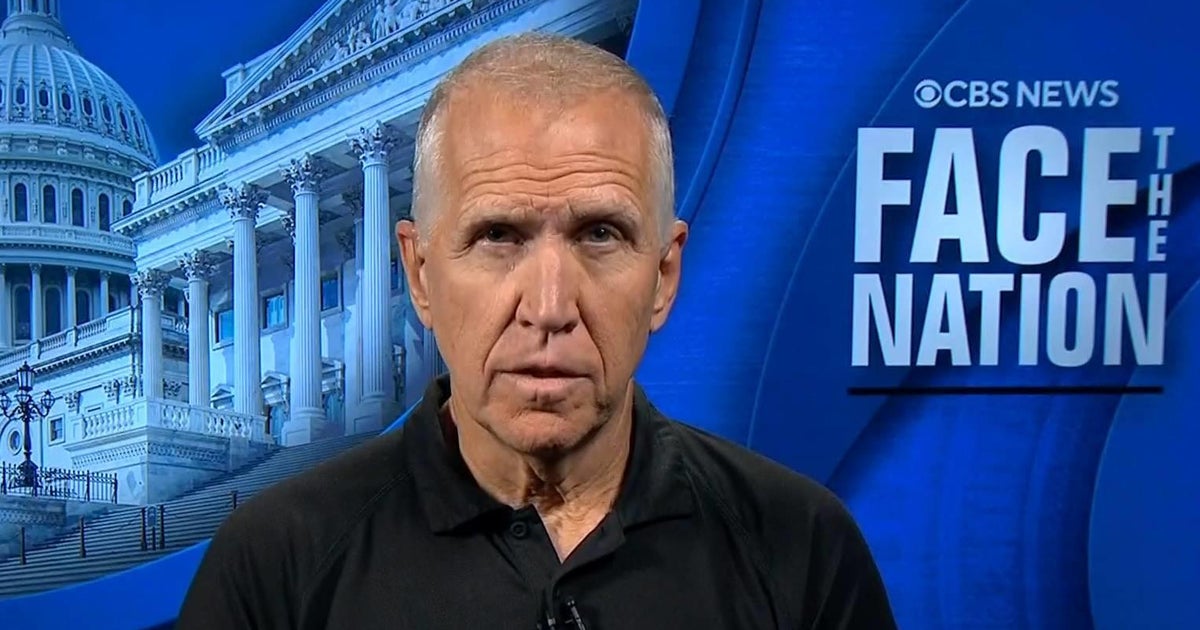CBS News
Should you use home equity to pay for a wedding? Here’s what experts say

Getty Images
Weddings are meant to be fun, joyous occasions, but the financial aspects of getting married can be stressful. Planning for the big day is also getting more difficult as inflation continues to put pressure on Americans’ budgets. For example, the average cost of a wedding in the US was $35,000 in 2023, an increase of $5,000 from the year prior, according to The Knot. And, finding room in the budget to cover this amount isn’t easy for many people.
While about half save up for a wedding in advance, nearly a third say they’re optimizing credit cards to pay for a wedding in 2024, according to a survey from Zola. In some cases that means using credit card points to cover costs, but it can also mean other things like opening new credit cards, which can be an expensive way to pay for a wedding. After all, the average credit card interest rate is over 21%, according to the Federal Reserve.
But ne possible way to finance a wedding at a lower interest rate is to use your home equity. While credit card rates average in the double digits, the average home equity loan and home equity line of credit (HELOC) interest rates are between about 8% and 9% currently. But even at that comparatively low rate, does it make sense to borrow against your home’s equity to pay for a wedding?
Find out how affordable the right home equity loan could be today.
Should you use home equity to pay for a wedding? Here’s what experts say
Experts generally caution against using your home equity to cover wedding expenses, as you’re not only taking on debt but are putting your home up as collateral for the financing.
“In doing so, you would basically be putting your house — the largest asset most people have — on the line, which is not smart,” says Michael Micheletti, chief communications officer at Unlock Technologies.
That said, there are times when it could make sense to use your home equity to pay for a wedding — and times when you shouldn’t. Here’s what you should know.
When it could be worth using home equity to pay for a wedding
If you’re determined to borrow money to pay for a wedding, there can be situations where using home equity might make sense above other options, like using multiple credit cards.
For example, “a HELOC offers the advantage of paying from one source vs. taking out different loans or borrowing from family. But be mindful of the new monthly payment, as going into a marriage with additional debt might cause some stressors,” says Rose Krieger, senior home loan specialist at Churchill Mortgage.
Also, borrowing from multiple sources — like using several credit cards and taking out a personal loan — could hurt your credit more than if you just opened one new account by borrowing from your home equity, says Krieger.
Borrowing against your home equity to pay for a wedding could also make sense in situations where you’re able to quickly pay off the loan without hurting your finances.
“It could potentially work if the borrower has a tremendous amount of equity in their home, and they plan on selling the home for a profit. They may intend to buy another home for a much lower price. If that’s the case, the equity in the home could pay for the wedding without a decade of payments to follow,” says Don Grant, a CFP Board ambassador.
Similarly, there could be circumstances where you don’t lose any money by borrowing if you can earn more on your cash elsewhere.
If the home equity interest rate is lower than the risk-free rate of return — often considered to be the 10-year Treasury rate — and the loan can be paid off in under 12 months, it could make sense, says Nicky Amore, a CFP Board ambassador.
However, this is rare, and Amore generally does not think using home equity to pay for a wedding is in your best interest.
Compare your home equity loan options and get started on a preapproval now.
When it might not be worth using home equity to pay for a wedding
While using your home equity to pay for wedding costs sometimes works out, in many cases, it’s unnecessary to put yourself in debt like this.
“This is one of those situations whereby I need to tell my client what they need to hear, not what they may want to hear,” says Grant.
While some debt enables you to potentially improve your finances, such as taking out a mortgage for a house that might appreciate in value, one-time events, like weddings, generally don’t provide the same benefit.
“When a home is leveraged to raise money for a use that does not grow in value or create future revenue, it places the borrower at risk of potentially losing their home if there were a job loss or other financial emergency. That is not the way a couple should position themselves at the beginning of a lifetime relationship,” says Grant.
You might be digging yourself a hole, even if you get lots of monetary wedding gifts to help offset the borrowing costs — especially when accounting for the fees and initial interest costs of taking out a home equity loan or HELOC.
Plus, you could face additional costs due to tapping into your home equity, such as if a market downturn then causes your equity to fall below 20%, which could require you to add private mortgage insurance (PMI), notes Grant.
The bottom line
Using your home equity to pay for a wedding can be risky and expensive, even if there are interest rate cuts that bring down financing costs in the future. However, there are occasionally situations in which it makes sense or is at least better than alternatives, like racking up wedding expenses on your credit card without paying the card off each month.
CBS News
10/6: Face the Nation – CBS News

Watch CBS News
Be the first to know
Get browser notifications for breaking news, live events, and exclusive reporting.
CBS News
Sen. Thom Tillis says “the scope” of Helene damage in North Carolina “is more like Katrina”

As recovery missions and repairs continue in North Carolina more than a week after Hurricane Helene carved a path of devastation through the western part of the state, the state’s Republican Sen. Thom Tillis called for more resources to bolster the relief effort and likened the damage to Hurricane Katrina’s mark on Louisiana in 2005.
“This is unlike anything that we’ve seen in this state,” Tillis told CBS News’ Margaret Brennan on “Face the Nation with Margaret Brennan” on Sunday morning. “We need increased attention. We need to continue to increase the surge of federal resources.”
Hurricane Helene ripped through the Southeast U.S. after making landfall in Florida on Sept. 26 as a powerful Category 4 storm. Helene brought heavy rain and catastrophic flooding to communities across multiple states, including Georgia, South Carolina, Tennessee and Virginia, with North Carolina bearing the brunt of the destruction. Officials previously said hundreds of roads in western North Carolina were washed out and inaccessible after the storm, hampering rescue operations, and several highways were blocked by mudslides.
Tillis said Sunday that most roads in the region likely remained closed due to flooding and debris. Water, electricity and other essential services still have not been fully restored.
“The scope of this storm is more like Katrina,” he said. “It may look like a flood to the outside observer, but again, this is a landmass roughly the size of the state of Massachusetts, with damage distributed throughout. We have to get maximum resources on the ground immediately to finish rescue operations.”
Hurricane Katrina left more than 1,000 people dead after it slammed into Louisiana’s Gulf Coast in August 2005, flooding neighborhoods and destroying infrastructure in and around New Orleans as well as in parts of the surrounding region. It was the deadliest hurricane to hit the mainland U.S. in the last 50 years, and the costliest storm on record.
The death toll from Hurricane Helene is at least 229, CBS News has confirmed, with at least 116 of those deaths reported in North Carolina alone. Officials have said they expect the death toll to continue to rise as recovery efforts were ongoing, and a spokesperson for the police department in Asheville told CBS News Friday their officers were “actively working 75 cases of missing persons.”
On Saturday, the U.S. Department of Transportation released $100 million in emergency funds for North Carolina to rebuild the roads and bridges damaged by the hurricane.
“We are providing this initial round of funding so there’s no delay getting roads repaired and reopened, and re-establishing critical routes,” U.S. Transportation Secretary Pete Buttigieg said in a statement. “The Biden-Harris administration will be with North Carolina every step of the way, and today’s emergency funding to help get transportation networks back up and running safely will be followed by additional federal resources.”
President Biden previously announced that the federal government would cover “100%” of costs for debris removal and emergency protective measures in North Carolina for six months.
With North Carolina leaders working with a number of relief agencies to deal with the aftermath of the storm, Tillis urged federal officials to ramp up the resources being funneled into the state’s hardest-hit areas. The senator also addressed a surge in conspiracy theories and misinformation about the Biden Administration’s disaster response, which have been fueled by Republican political figures like former President Donald Trump.
Trump falsely claimed that Mr. Biden and Vice President Kamala Harris, his Democratic opponent in the November presidential election, were diverting funds from Federal Emergency Management Agency that would support the relief effort in North Carolina toward initiatives for immigrants. He also said baselessly that the administration and North Carolina Gov. Roy Cooper, a Democrat, were withholding funds because many communities that were hit hardest are predominantly Republican. Elon Musk has shared false claims about FEMA, too.
“Many of these observations are not even from people on the ground,” Tillis said of those claims. “I believe that we have to stay focused on rescue operations, recovery operations, clearing operations, and we don’t need any of these distractions on the ground. It’s at the expense of the hard-working first responders and people that are just trying to recover their lives.”
CBS News
Face the Nation: Tillis, Tyab, Russel

Watch CBS News
Be the first to know
Get browser notifications for breaking news, live events, and exclusive reporting.


